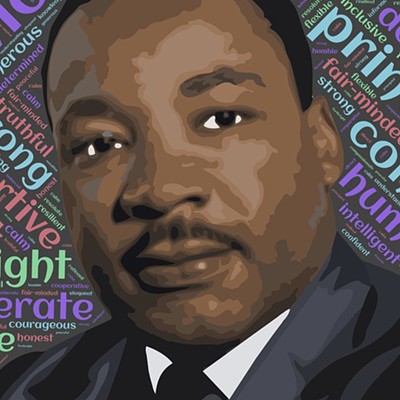HEREAFTER
***
From his spaghetti Westerns through the surprise box office smash Gran Torino, Clint Eastwood has offered increasingly mature treatises on the subject of death, specifically how it relates to the act of one person taking another's life. Hereafter, Eastwood's newest and (arguably) most misunderstood movie, finds the filmmaker coming at us from a quieter place, examining the notion of death away from the sudden impact of a 357 Magnum or other forms of violent, purposeful retribution. The result is a haunting experience certain to resonate with more discerning filmgoers, as well as a return to form for Eastwood after the Rocky-like theatrics of Invictus.
The script by Peter Morgan (The Queen) follows three separate stories that eventually dovetail in one satisfying finale. The first focuses on George Lonegan (Matt Damon in a beautifully modulated performance), a bona fide psychic whose ability to glimpse into the afterworld has left him alone in this world. The second tale follows French journalist Marie Lelay (Cecile de France), whose near-death experience during the devastating 2004 tsunami has understandably affected everything from her career to her relationships. Finally, there are Marcus and Jason (Frankie McLaren and George McLaren), twin lads from London who find their brotherly bond seemingly severed on the heels of a tragic incident.
Hereafter unfolds with the patience of a good book, a factor likely to turn off more antsy audience members. Yet those who don't flinch at its meditative rhythms will find much to appreciate, starting with the understated manner in which Eastwood and Morgan present their material. Steadfastly refusing to engage in dogmatic pursuits, the pair are content to offer a universally accessible look at the manner in which people become so preoccupied with the notion of death that they are unable or unwilling to live for themselves.
The picture's low-key approach extends to the fleeting supernatural moments, shot in a matter-of-fact way that's neither fussy nor forced. Indeed, Hereafter emerges as the most gentle picture in Eastwood's filmography, a sincere push for establishing meaningful connections among the living in our own world, as well as a ruminative exploration on the importance of making peace with this life before venturing into the great unknown.
MY SOUL TO TAKE
*
The best thing about My Soul to Take is that it may force otherwise sensible folks to revisit director Wes Craven's past works and finally realize that he's always been nothing more than a hack in the horror field, a Uwe Boll with a better sense of where to place the camera. (Forget Scream and Freddy Krueger; Red Eye and The Hills Have Eyes, neither great but both certainly watchable, represent his apex of aptitude.)
In this head-smackingly stupid film, seven children are born on the same night that a serial killer known as the Ripper is brought down. Sixteen years later, the kids, now obnoxious high school students, are being picked off one by one, begging the question: Is the Ripper still out there somewhere, or did his soul enter one of the babies on that fateful night long ago?
To his credit, Craven keeps his rampant misogyny in check -- in most of his films, it's the victimized women who receive the fetishistic close-ups and elongated death scenes, but here, each slaying (male and female) is as dully and incompetently presented as the next. His screenplay is so haphazard that one wonders if he was writing pages minutes before each day's shooting commenced; additionally, there are no horror set-pieces worth mentioning, and Craven's stock high school characters would have made John Hughes cringe. It all adds up to a soul-crushing waste of time.

























